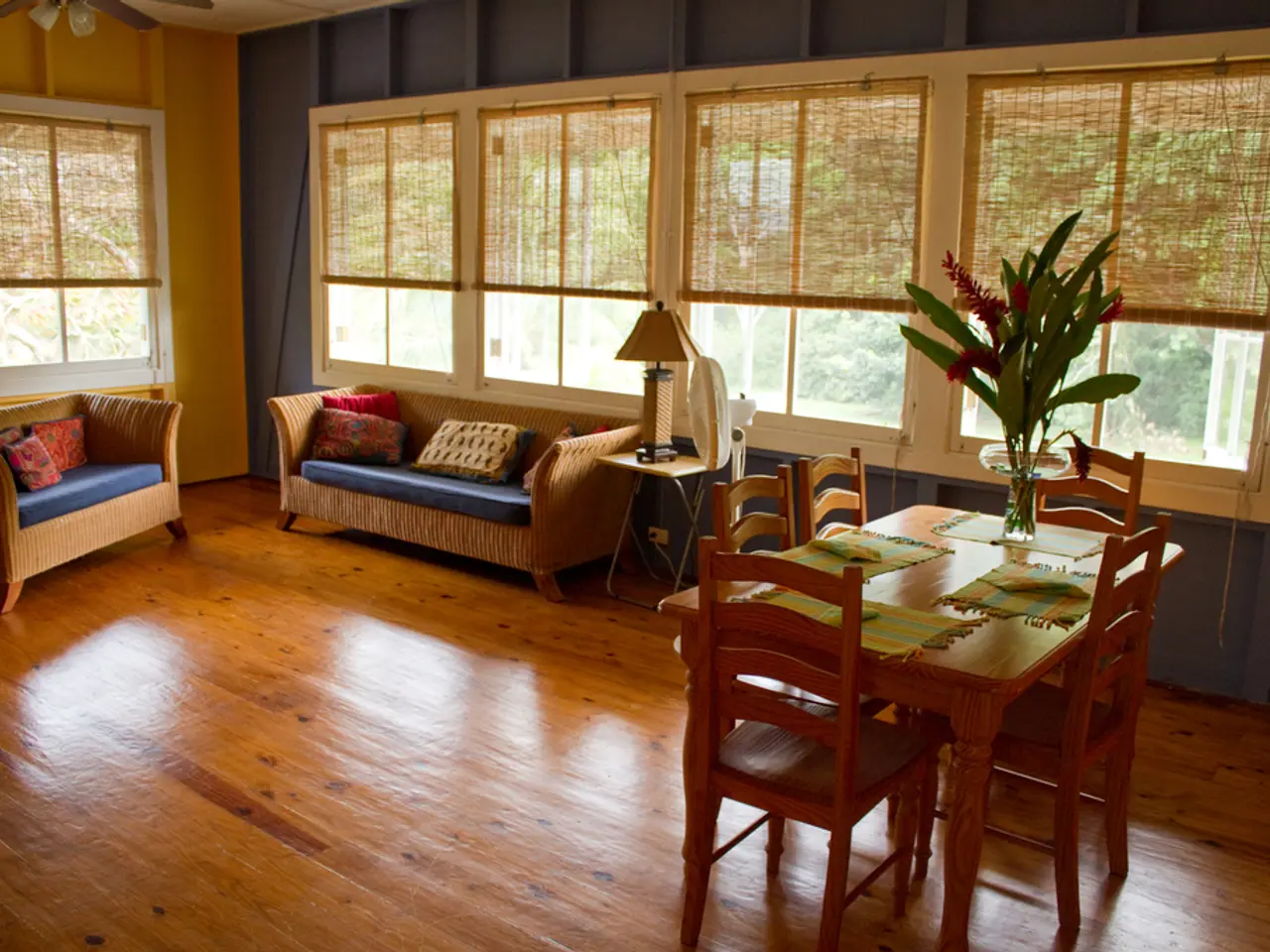What timeline should one consider when deciding to invest in real estate?
When pondering the choice between buying or renting property in Germany in 2025, there are several trends and factors to consider, encompassing both financial and personal aspects.
Latest Trends
The German real estate market is bustling, with strong price growth particularly evident in major cities like Berlin, Munich, and Hamburg. Single-family houses saw a price increase of about 3.7% year-over-year in mid-2025, while apartments and multi-family houses rose by 2.7% or slightly less after adjusting for inflation[1][5].
The rental market remains robust, with rents rising nationwide by roughly 4.7% in 2024 and even more sharply in top cities (over 11% increase for new contracts in Munich, Frankfurt, Berlin)[3]. This sustained high demand for quality rental housing reflects economic strength.
International investors drive about 42% of real estate investment volume, reinforcing Germany’s reputation as a stable market. Multifamily housing constitutes a significant share of transactions due to housing shortages and strong rental demand[1].
Demographic changes influence the market. Many older residents are downsizing, making larger homes more available for purchase, especially outside rural areas where prices are more affordable. This shift opens opportunities for families seeking quieter, well-connected locations[2].
Regulatory focus on sustainable construction and energy efficiency is growing, affecting buying costs and long-term savings. Improvements in transaction transparency help buyers make more informed decisions[2].
Financial Factors to Consider
Price trends: Property prices continue to display moderate upward movement, particularly for single-family homes, while rental prices also grow consistently[3][5].
Interest rates: Although historically low interest rates have been a factor encouraging buying, risk aversion to large mortgages remains prevalent among many Germans[4].
Rental vs. mortgage cost comparison: Renters avoid upfront costs, taxes, and maintenance; buyers invest capital but gain asset appreciation and potential rental income.
Energy-efficiency compliance: New regulations mean buying properties may require investments upfront but yield long-term savings on utilities[2].
Market liquidity and transaction complexity: Buying can mean more complex procedures and longer commitment; renting offers flexibility without property management responsibilities[4].
Personal Aspects to Weigh
Lifestyle flexibility: Renting allows easier relocation and less commitment, appealing to those who value mobility or avoid financial risk[4].
Control over living space: Owners can customize their homes freely; renters typically face restrictions on alterations[4].
Long-term goals: Buying suits those planning to settle, build equity, or invest; renting may be preferred by people prioritizing convenience and avoiding debt.
Location preference: City centers offer investment value but higher costs; rural or suburban areas offer tranquility and affordability, aided by demographic shifts making larger homes more accessible[2].
In summary, renting in Germany remains popular for flexibility and lower risk, especially given rising rents and urban demand, while buying is attractive for long-term investment, asset building, and taking advantage of demographic and regulatory shifts towards sustainable homes. Prospective buyers should assess price trends, financing conditions, and regulatory compliance; renters benefit from mobility and less financial exposure. The choice depends on individual financial readiness, lifestyle preferences, and market timing considerations unique to 2025 Germany[1][2][3][4][5].
It's important to note that the advantage of buying a property depends on regional property-to-rental price levels. Six out of ten Germans dream of owning their own home, with the figure being as high as three out of four among those aged 24 and under. Renting a house may not be the right choice for those who enjoy organizing and taking care of their property, as owning a property comes with responsibility for the condition of the house. Investing in real estate can be a popular form of investment, with rising rental income promising good profits. Property prices in Germany have risen significantly in recent years. Rent-to-own is another option for achieving one's own four walls, allowing one to buy a house without equity over several years. Terminating a rental agreement allows for easy relocation with notice periods. Investing in real estate can involve taxing rental income.
- With the price growth in major cities like Berlin, Munich, and Hamburg, investing in real estate, particularly single-family houses, might be lucrative in the German housing-market in 2025.
- Personal-finance considerations suggest that renting in Germany can offer flexibility and lower risk, especially given the robust rental market and higher urban rents, while buying provides potential for long-term investment and asset accumulation, particularly taking advantage of demographic and regulatory shifts towards sustainable homes.
- In terms of personal-finance, the decision between investing in real-estate or continuing to rent in Germany should consider regional property-to-rental price levels, investment strategies, and individual financial readiness, as well as lifestyle preferences and market timing considerations unique to 2025 Germany.







